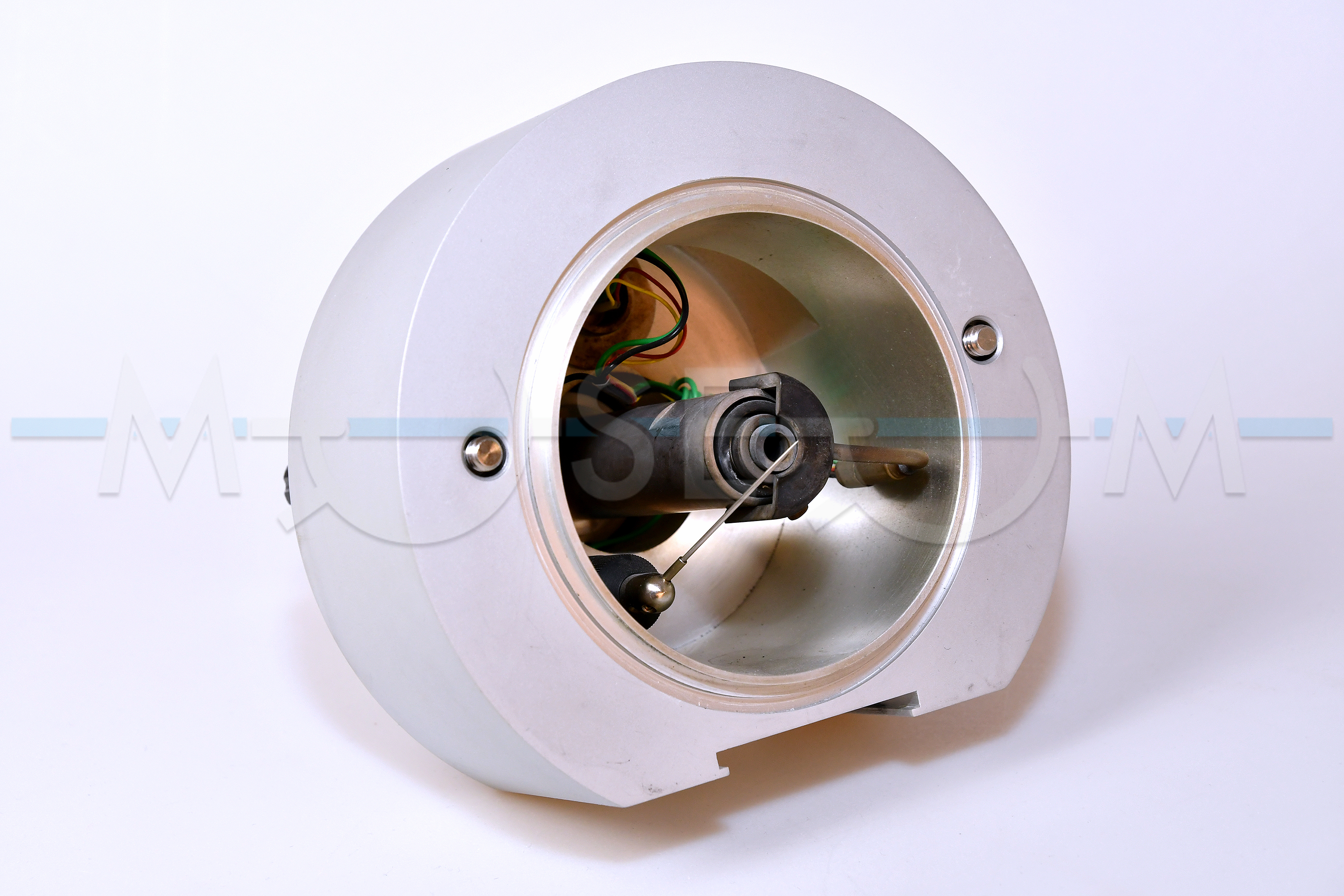Categories of exhibits
APCI probe assembly
Exhibit no. 412
Atmospheric pressure chemical ionization (APCI) is a soft ionization technique that can be used to detect compounds separated by high-performance liquid chromatography. It is a gas-phase technique where acidities and basicities of the analyte and solvent vapors play an important role. In an APCI source, a nebulized stream of droplets leaves the sample inlet tube and travels toward the entrance to the mass analyzer. Hot vapors pass a needle electrode with a corona discharge at its tip. The plasma maintained by the discharge ionizes the analyte.
The exhibit is an APCI probe assembly from the ion trap mass spectrometer LCQ Classic manufactured by Thermo in 1999. It consists of a flange with the APCI probe and the corona discharge needle. The flange was mounted on rails that allowed movement toward and away from the vacuum manifold. When the flange was in the operating position, it compressed the high-voltage safety-interlock switch and two retainer bolts secured it in place. The probe consists of the sample tube, nozzle, sheath gas and auxiliary gas plumbing, and vaporizer. The sample tube made of 0.15 mm ID fused silica capillary extended to the end of the nozzle. The gas plumbing delivered nitrogen gas to the nozzle and the vaporizer allowed temperatures up to 800 °C. The APCI probe accommodated liquid flows between 100 μL/min and 2 mL/min.





